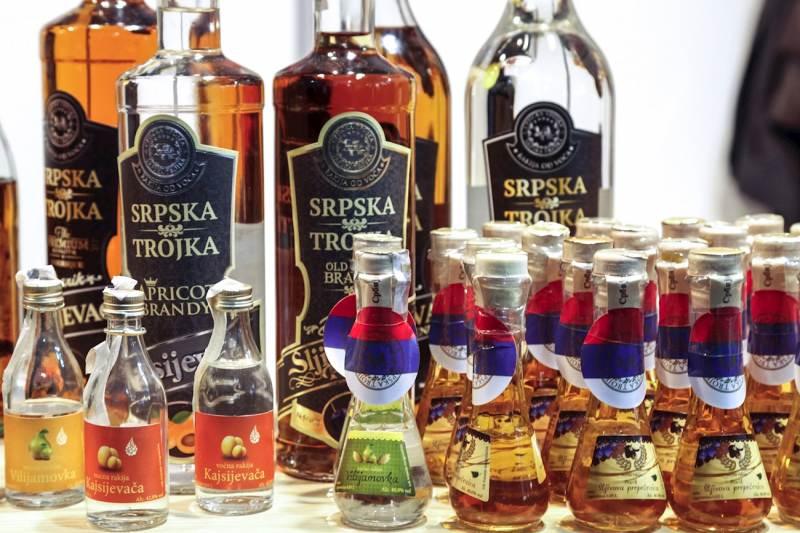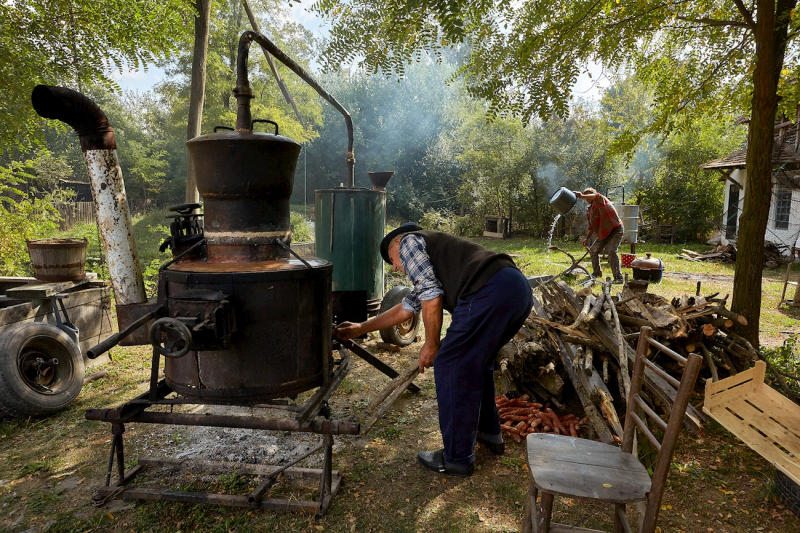Rakija

Rakija is a generic term for a variety of fruit brandies produced in several Balkan countries (Southeast Europe). This strong spirit is distilled from various fruits and is sometimes flavored or used as a base for liqueurs. The most common varieties are made from plums (šljivovica ), Williams pear (viljamovka), quinces (dunjevača ), apricots (kajsijevača ), apples (jabukovača ), grapes (lozovača/komovica ), and a variety of other fruits.
For centuries, Rakija has been present in the region. It is most commonly associated with Croatia, Serbia, Bosnia and Herzegovina, Montenegro, and North Macedonia. Although fruit brandies are produced in other European countries and regions, rakija is a household name in the Balkans and has a large following across all generations.
This potent spirit typically has an ABV of 40 to 60 percent. It is typically served neat in a shot glass, preferably well chilled. Rakija is primarily a social beverage that is drunk with friends or as a welcome drink. Locals also believe that rakija is a fantastic health remedy, and they use it to boost their immune system or alleviate minor medical issues.
Rakija can be a pure distilled spirit, but it is sometimes flavored with herbs and fruits. Many producers use rakija as a liqueur base, but these liqueurs, such as orahovac made with walnuts or honey-flavored medica, are technically liqueurs rather than fruit brandies.
Although rakija has a reputation for being a rough and harsh drink, many producers are attempting to break away from this stereotype by creating exceptional labels that they market as savoring and sipping beverages.
















